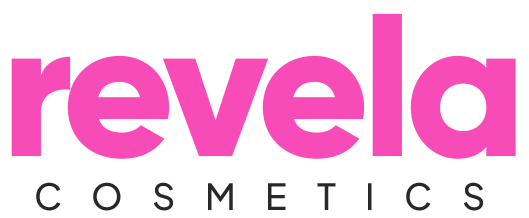Skincare products have become a staple in the daily routines of millions worldwide, promising to enhance skin health, improve appearance, and address specific concerns. However, with increasing awareness of ingredients, side effects, and sustainability, questions arise: Are skincare products bad for you? Let’s break down the science, potential risks, and benefits to understand their impact.
Understanding Skincare Products
Skincare products are designed to protect, hydrate, and repair the skin. They range from basic moisturizers and cleansers to advanced serums with active ingredients targeting acne, hyperpigmentation, or aging. The effectiveness and safety of these products depend on their formulation, quality, and how they’re used.
Potential Risks of Skincare Products
While most skincare products are safe when used correctly, certain risks exist:
1.Irritation and Allergies
○Ingredients such as fragrances, alcohols, and preservatives (like parabens) can cause irritation or allergic reactions, especially for sensitive skin.
○Symptoms include redness, itching, or rashes, often due to overuse or incompatibility with skin type.
2.Harmful Ingredients
○Harsh Chemicals: Ingredients like sulfates and phthalates, found in some cleansers and lotions, can strip natural oils and disrupt the skin barrier.
○Hydroquinone: Widely used in skin-lightening products, prolonged use can lead to ochronosis, a condition causing skin darkening.
○Parabens: These preservatives have been linked to hormone disruption, though evidence remains inconclusive at low concentrations.
3.Overuse of Active Ingredients
○Popular actives like retinol, glycolic acid, and salicylic acid can cause over-exfoliation, redness, and sensitivity if used excessively or incorrectly.
○Layering too many products can overwhelm the skin, leading to breakouts or compromised skin barriers.
4.Counterfeit and Low-Quality Products
○Fake skincare products, often sold online or in unregulated markets, can contain harmful substances, including mercury or steroids.
○Low-quality products may lack the efficacy of their branded counterparts and pose greater health risks.
5.Environmental Impact
○Many skincare products contain microplastics, non-biodegradable packaging, or ingredients harmful to marine ecosystems (e.g., oxybenzone in sunscreens).
○Ethical concerns arise from the testing of products on animals in some regions.
The Benefits of Skincare Products
On the flip side, when chosen and used appropriately, skincare products offer significant benefits:
1.Improved Skin Health
○Sunscreen protects against harmful UV rays, reducing the risk of skin cancer and premature aging.
○Moisturizers help maintain hydration, preventing dryness and improving skin elasticity.
2.Targeted Solutions
○Active ingredients like niacinamide, vitamin C, and peptides address specific concerns like hyperpigmentation, acne, or fine lines.
3.Boosted Confidence
○Clear, healthy skin often leads to increased self-esteem and a positive self-image.
4.Preventive Care
○Establishing a skincare routine early can prevent long-term damage, such as deep wrinkles, hyperpigmentation, or persistent acne scars.
5.Self-Care and Mental Health
○The act of caring for your skin fosters mindfulness, relaxation, and stress relief, positively impacting mental well-being.
How to Ensure Safety in Skincare
To reap the benefits while minimizing risks, follow these steps:
1.Read Ingredient Labels
○Avoid products with known irritants or allergens if you have sensitive skin.
○Research active ingredients to understand their concentration and compatibility.
2.Patch Test New Products
○Apply a small amount to an inconspicuous area (like behind the ear) before full-face use.
3.Consult a Dermatologist
○Seek professional advice for chronic skin issues or before starting potent active ingredients like retinol or chemical exfoliants.
4.Use Products as Directed
○Overuse or combining too many actives can harm the skin rather than help.
5.Choose Reputable Brands
○Opt for brands that are transparent about ingredients, formulations, and sustainability practices.
6.Be Cautious with Trends
○Viral products may not suit everyone. Focus on your skin’s unique needs rather than blindly following fads.
Are Natural or DIY Skincare Products Safer?
Natural products often appeal to consumers seeking gentler options. However:
●Not All Natural Ingredients Are Safe: Essential oils, for example, can cause irritation if not diluted correctly.
●DIY Products Are Unregulated: Homemade remedies lack the testing required for commercial skincare, and certain ingredients (like lemon juice or baking soda) can damage the skin.
●Synthetic Ingredients Aren’t All Bad: Many lab-made ingredients are designed to be stable, effective, and safe for prolonged use.
Conclusion
Skincare products are not inherently bad for you, but their safety depends on informed choices and responsible usage. Selecting the right products for your skin type, avoiding harmful or unnecessary ingredients, and following a balanced routine can maximize benefits while minimizing risks. With growing awareness, the industry is shifting towards safer, more sustainable practices—a positive step for both skin health and the environment.
Remember, skincare is a journey. Listen to your skin, stay informed, and prioritize what works for your unique needs.
.



















